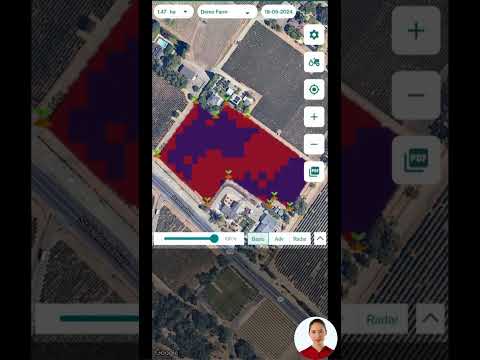North Dakota Senate Rejects Bill Linking Infrastructure Funds to Energy Project Approvals: A Comprehensive Analysis
“North Dakota’s Operation Prairie Dog funds, worth millions, were at stake in a recent Senate bill vote.”
In a significant development for North Dakota’s energy landscape and infrastructure funding, the state Senate has recently rejected a bill that would have tied infrastructure dollars to the approval of energy and agricultural projects. This decision has far-reaching implications for the state’s political subdivisions, energy sector, and overall economic development. In this comprehensive analysis, we’ll delve into the details of this legislative move and its potential impact on North Dakota’s future.
Understanding the Rejected Bill: Senate Bill 2208
On Friday, the North Dakota state Senate voted 19-27-1 against Senate Bill 2208 after a 30-minute debate. This bill, if passed, would have withheld infrastructure funds from political subdivisions where local rules blocked state-approved energy and agricultural projects. The proposed legislation was particularly focused on the Operation Prairie Dog funds, a crucial source of infrastructure financing for non-oil producing counties in North Dakota.

Operation Prairie Dog: A Vital Infrastructure Initiative
Operation Prairie Dog, established in 2019, is a critical funding mechanism that utilizes taxes from North Dakota’s oil and gas sector to finance infrastructure upgrades across non-oil producing counties. This initiative makes available up to $115 million per biennium for municipalities and an additional $115 million for counties and townships. The rejection of Senate Bill 2208 ensures that this vital funding source remains accessible to all eligible political subdivisions, regardless of their stance on energy and agricultural projects.
The Debate: State Authority vs. Local Control
The proposed bill sparked a heated debate in the North Dakota Senate, highlighting the tension between state authority and local decision-making power. Supporters of the bill argued that large-scale infrastructure projects for energy export and import are crucial for maintaining high oil and gas production in the state. They contended that localities opposing such projects should not benefit from the revenue generated by the energy sector.
State Sen. Terry Wanzek, R-Jamestown, summarized this perspective, stating, “They want the benefit of those projects, but not the inconvenience.” This sentiment reflects a broader concern about the “not in my backyard” attitude that has emerged in response to some energy and agricultural initiatives.
The Case for Local Autonomy
Opponents of the bill, while acknowledging the importance of energy projects, argued that the proposed legislation overstepped boundaries and could potentially infringe on local autonomy. State Sen. Todd Beard, R-Williston, suggested that disputes over local control are best resolved through the court system rather than legislative mandates.
State Sen. Mark Weber, R-Casselton, emphasized the need for compromise between industry, local political authorities, and landowners. He drew a parallel to state-federal relations, saying, “We don’t like it when the federal government tells our state what to do. Why should we like it then when our own state is telling our cities, counties, school districts and other political sub(divisions) what to do?”
Implications for North Dakota’s Energy Landscape
The rejection of Senate Bill 2208 has significant implications for North Dakota’s energy sector and infrastructure development:
- Continued Local Influence: Political subdivisions retain their ability to influence energy and agricultural projects without risking their infrastructure funding.
- Balanced Development: The decision promotes a more balanced approach to energy development, considering both state interests and local concerns.
- Infrastructure Investment: Non-oil producing counties can continue to access Operation Prairie Dog funds for critical infrastructure upgrades.
- Energy Project Approvals: The process for approving energy projects remains unchanged, potentially leading to more negotiations between state authorities and local communities.
Renewable Energy Considerations
Interestingly, the proposed bill specifically excluded solar generators and wind farms from its provisions. This exclusion highlights the evolving nature of North Dakota’s energy landscape and the growing importance of renewable energy sources. As the state continues to navigate its energy future, the role of solar and wind projects in North Dakota’s energy mix remains a topic of ongoing discussion and potential future legislation.

The Role of Technology in North Dakota’s Agricultural Future
As North Dakota grapples with these complex issues of energy development and infrastructure funding, it’s worth noting the increasing role of technology in shaping the state’s agricultural landscape. Companies like Farmonaut are at the forefront of this technological revolution, offering innovative solutions that can help farmers and policymakers make more informed decisions about land use and resource management.
Farmonaut’s satellite-based farm management solutions provide valuable insights into crop health, soil conditions, and overall farm productivity. This technology can be particularly useful in areas where energy development and agriculture intersect, helping to optimize land use and minimize potential conflicts.
Comparative Analysis: Energy Project Approvals and Infrastructure Funding
| Project Type | Current Approval Process | Proposed Changes Under Rejected Bill | Potential Impact on Infrastructure Funding |
|---|---|---|---|
| Oil & Gas | State approval with local input | Local opposition could result in funding loss | Up to 100% loss of Prairie Dog funds for opposing subdivisions |
| Solar | Local zoning with state oversight | Excluded from proposed restrictions | No direct impact on funding |
| Wind Farms | Local approval with state guidelines | Excluded from proposed restrictions | No direct impact on funding |
| Large Animal Feedlots | Local permits with state environmental review | Local opposition could result in funding loss | Potential loss of infrastructure funds for opposing areas |
| Municipal Infrastructure | Local control with state funding support | Funding tied to energy project approvals | Risk of losing up to $115 million in biennial funding |
| County/Township Projects | Local decision-making with state grants | Funding contingent on supporting state energy initiatives | Potential loss of $115 million in biennial funding |
“The rejected bill would have impacted infrastructure upgrades in all 53 non-oil producing counties of North Dakota.”
The Importance of Data-Driven Decision Making
In the context of these complex legislative and economic issues, the importance of data-driven decision making cannot be overstated. Technologies like those offered by Farmonaut can play a crucial role in providing accurate, up-to-date information about land use, crop health, and environmental conditions. This data can inform both policymakers and local communities as they navigate the challenges of balancing energy development with agricultural needs and environmental concerns.
For instance, Farmonaut’s satellite-based crop health monitoring system can help identify areas where energy development might have the least impact on agricultural productivity. Similarly, the company’s AI-driven advisory system, Jeevn AI, could provide valuable insights into how different land use decisions might affect crop yields and overall farm efficiency.
The Future of North Dakota’s Energy and Agricultural Sectors
As North Dakota continues to navigate the complex interplay between energy development, agricultural needs, and infrastructure funding, several key factors will likely shape the state’s future:
- Technological Innovation: Advanced technologies like those offered by Farmonaut will play an increasingly important role in optimizing land use and resource management.
- Balanced Development: The rejection of Senate Bill 2208 suggests a continued emphasis on finding a balance between state energy goals and local autonomy.
- Renewable Energy Growth: The exclusion of solar and wind projects from the proposed restrictions indicates a potential shift towards greater support for renewable energy in North Dakota.
- Infrastructure Investment: Continued access to Operation Prairie Dog funds will be crucial for maintaining and upgrading infrastructure across the state’s non-oil producing counties.
- Collaborative Approaches: Future legislative efforts may focus on fostering greater collaboration between state authorities, local communities, and industry stakeholders.
The Role of Precision Agriculture in North Dakota’s Future
As North Dakota grapples with these complex issues of energy development, infrastructure funding, and agricultural sustainability, precision agriculture technologies like those offered by Farmonaut are becoming increasingly important. These advanced tools can help farmers and policymakers make more informed decisions about land use, resource allocation, and crop management.
Farmonaut’s satellite-based farm management solutions provide real-time insights into crop health, soil moisture levels, and other critical metrics. This data can be invaluable for optimizing agricultural practices, especially in areas where energy development and farming activities intersect. By leveraging these technologies, North Dakota can work towards a future where energy production and agriculture coexist more harmoniously.
Sustainable Practices and Environmental Considerations
The debate surrounding Senate Bill 2208 also highlights the growing importance of sustainable practices and environmental considerations in North Dakota’s energy and agricultural sectors. Farmonaut’s carbon footprinting feature, for instance, can help agribusinesses monitor and reduce their environmental impact. This aligns well with the state’s need to balance economic development with environmental stewardship.
As North Dakota continues to evolve its energy policies, tools that provide accurate data on environmental impacts will be crucial. They can help inform policy decisions, guide sustainable development practices, and potentially ease tensions between different stakeholders in the energy and agricultural sectors.
Enhancing Transparency and Trust
One of the key issues underlying the debate over Senate Bill 2208 was the need for greater transparency and trust between state authorities, local communities, and industry players. Technologies like Farmonaut’s blockchain-based traceability solutions could play a role in addressing these concerns. By providing verifiable data on various aspects of agricultural and energy projects, such tools can help build trust and facilitate more informed discussions between different stakeholders.
The Economic Impact of Infrastructure Funding
The Operation Prairie Dog initiative, which was at the center of the Senate Bill 2208 debate, plays a crucial role in North Dakota’s economic development. By providing up to $230 million per biennium for infrastructure projects in non-oil producing counties, this funding mechanism helps ensure more balanced development across the state. The rejection of the bill means that these funds will continue to be distributed based on existing criteria, rather than being tied to energy project approvals.
This decision has significant implications for North Dakota’s rural communities, many of which rely heavily on these funds for essential infrastructure upgrades. Continued access to this funding will be crucial for maintaining roads, bridges, water systems, and other vital infrastructure that supports both agricultural activities and potential energy developments.
The Intersection of Agriculture and Energy
The debate over Senate Bill 2208 underscores the complex relationship between North Dakota’s agricultural and energy sectors. Both are vital to the state’s economy, but they sometimes compete for land and resources. As North Dakota continues to navigate this balance, data-driven solutions will be increasingly important.
Farmonaut’s technologies, such as its satellite-based crop health monitoring and AI advisory systems, can provide valuable insights into how different land use decisions might affect agricultural productivity. This information could be crucial in helping policymakers and local communities make informed decisions about where to allow energy development and how to mitigate its impact on farming activities.
Looking Ahead: The Future of North Dakota’s Energy and Agricultural Landscape
As North Dakota moves forward from the Senate Bill 2208 decision, several key trends and considerations are likely to shape the state’s energy and agricultural future:
- Continued Dialogue: The debate over the bill highlights the need for ongoing discussions between state authorities, local communities, and industry stakeholders.
- Technological Innovation: Advanced technologies will play an increasingly important role in optimizing both energy production and agricultural practices.
- Renewable Energy Growth: The exclusion of solar and wind projects from the proposed restrictions suggests a potential shift towards greater support for renewable energy in North Dakota.
- Data-Driven Decision Making: Tools that provide accurate, real-time data on land use, crop health, and environmental impacts will be crucial in informing future policy decisions.
- Balanced Development: Finding ways to support both energy development and agricultural productivity will remain a key challenge for North Dakota.
Conclusion
The North Dakota Senate’s rejection of Bill 2208 marks a significant moment in the state’s ongoing efforts to balance energy development, agricultural needs, and local autonomy. While the bill’s defeat maintains the status quo in terms of infrastructure funding distribution, it also opens the door for continued discussions about how best to support North Dakota’s diverse economic interests.
As the state moves forward, the role of advanced technologies in both agriculture and energy production will likely become increasingly important. Solutions like those offered by Farmonaut, which provide data-driven insights into land use and agricultural productivity, can play a crucial role in informing these discussions and helping to shape a sustainable future for North Dakota.
Ultimately, the path forward will require collaboration, innovation, and a commitment to balanced development that respects both state-level energy goals and local community needs. By leveraging the best available data and technologies, North Dakota can work towards a future where its energy sector, agricultural industry, and local communities all thrive together.
FAQ Section
- Q: What was the main purpose of Senate Bill 2208?
A: Senate Bill 2208 aimed to withhold infrastructure funds from political subdivisions where local rules blocked state-approved energy and agricultural projects. - Q: How did the North Dakota Senate vote on this bill?
A: The Senate voted 19-27-1 against the bill after a 30-minute debate. - Q: What is Operation Prairie Dog?
A: Operation Prairie Dog is a 2019 initiative that uses taxes from North Dakota’s oil and gas sector to fund infrastructure upgrades in non-oil producing counties. - Q: How much funding does Operation Prairie Dog provide?
A: It provides up to $115 million per biennium for municipalities and an additional $115 million for counties and townships. - Q: Were renewable energy projects included in the proposed bill?
A: No, solar generators and wind farms were specifically excluded from the bill’s provisions. - Q: What were the main arguments against the bill?
A: Opponents argued that the bill infringed on local autonomy and that disputes over local control are best resolved through the court system. - Q: How does this decision affect North Dakota’s energy landscape?
A: The decision maintains the current balance between state energy goals and local decision-making power, potentially leading to more negotiations between state authorities and local communities on energy projects. - Q: What role can technology play in addressing these challenges?
A: Advanced technologies, like those offered by Farmonaut, can provide data-driven insights to inform decision-making about land use, resource management, and the balance between energy development and agricultural needs.
Earn With Farmonaut: Affiliate Program
Earn 20% recurring commission with Farmonaut’s affiliate program by sharing your promo code and helping farmers save 10%. Onboard 10 Elite farmers monthly to earn a minimum of $148,000 annually—start now and grow your income!







